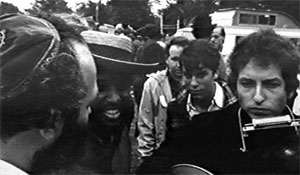In Leviticus 19:18 there is the most awesome and complicated mitzvah in the Torah:"Love your neighbor as yourself, I am Hashem. Ve'ahavta leReyacha kamocha, ani Hashem."
My secret for remembering that this mitzvah is Lev 19:18 is as follows. Now once I explain my secret I guess it won't be much of a secret anymore, but here goes:
Lev, although short for Leviticus, is also the word in Hebrew for heart. And everybody knows that the word for love in English comes from the Hebrew word for heart, which is Lev.
Now the First World War had just ended that year. Everybody had vowed that this would be the last war, it was so terrible. Horrible new weapons were invented that were unthinkable in earlier wars, and millions lost their lives. Poison gas and flame throwers. These were never before seen or used in warfare. It was so bad they couldn't ever imagine that there would one day ever be asecond world war. So in those days they didn't call it WW1 or the First World War. They just simply called it The Great War, it was so bad.
So the answer to heal the world then was as true then as it is today- Love your neighbor as yourself. And the letters reish and ayin in hebrew spell both the words for evil and neighbor. The consonants remain the same- just the vowels are different.
This is arguably absolutely the hardest mitzvah.
What is the connection between evil and neighbor? This is much more than having a possibly evil neighbor. It's really saying that we see ourselves the best in how our neighbor sees us. We might think we are the greatest person ever born, but our neighbor may have a different opinion if you leave your trash all over the place. And what we see as evil in our neighbor may more likely just be a reflection of our own imperfections, a projection of our own inadequacies.
Shabbat Shalom!
But do not love the evil! Hate evil, but love the person, even your neighbor, even yourself if you have sinned and you think of yourself as evil and unable to return back to Hashem and to goodness, in spite of the evil, and perhaps turn him or yourself around, and back on the right path. {Sur meRa, turn away from evil. Just turn away. Change direction. Not easy maybe, but turn away anyway. VeAsay Tov - and do good (Psalm 34)}. DO good and you become good. You are what you eat. But more importantly you also are what you DO. The converse also is true. DO evil and you become evil (an "evildoer"). But you can change. It is never too late!
Shabbat Shalom!
© 2000 - 2011 by Rabbi Baruch Binyamin Hakohen Melman
Chabibi stands for CHidushei Baruch Binyamin ben Yisrael Yehoshua
(a chidush, from the word chadash, means a new, original or fresh perspective)
Dedications are available.
These words of Torah are written in the merit of my beloved father, Israel J. Melman, obm, Yisrael Yehoshua ben Harav Ya'aqov Hakohen Melman, z"l and in memory of my beloved mother, Esther Melman, obm, Esther bat Baruch z"l.
http://seferchabibi.blogspot.com/2007/07/yahrzeit-of-my-father-27-tammuz.html
http://query.nytimes.com/gst/fullpage.html?res=9506EEDC1630F93BA35754C0A9649C8B63
http://seferchabibi.blogspot.com/2007/07/yahrzeit-of-my-father-27-tammuz.html
http://query.nytimes.com/gst/fullpage.html?res=9506EEDC1630F93BA35754C0A9649C8B63
Chabibi stands for CHidushei Baruch Binyamin ben Yisrael Yehoshua
(a chidush, from the word chadash, means a new, original or fresh perspective)
Dedications are available.

